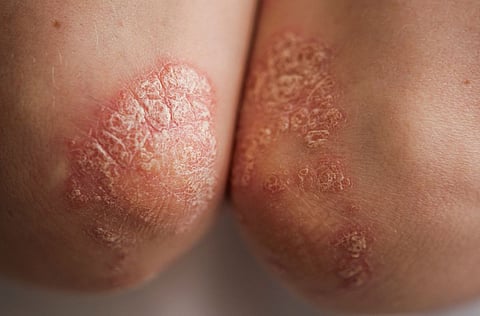THURSDAY, July 18, 2024 (HealthDay News) -- Long-term exposure to air pollution is associated with the development of new psoriasis, according to a study published online July 16 in JAMA Network Open.
Junhui Wu, Ph.D., from the Peking University School of Nursing in Beijing, and colleagues examined the association between long-term exposure to air pollution and psoriasis and the interaction between air pollution and genetic susceptibility for incident psoriasis. The analysis included 474,055 individuals with a median follow-up of 11.91 years.
The researchers observed a positive association between the risk for psoriasis and air pollutant exposure. For fine particulate matter with a diameter <2.5 μm, fine particulate matter with a diameter <10 μm, nitrogen dioxide, and nitrogen oxides, every interquartile range increase yielded higher risk. Multivariate-adjusted risks were also higher when comparing individuals in the highest exposure quartile with those in the lowest exposure quartile. There were significant interactions between air pollution and genetic predisposition for incident psoriasis, with a substantial risk for psoriasis development in individuals exposed to the highest quartile of air pollution levels concomitant with high genetic risk versus those in the lowest quartile of air pollution levels with low genetic risk.
"There is a need to devise and implement effective interventions aimed at mitigating air pollution and safeguarding individuals from the effects associated with psoriasis," the authors write.
Abstract/Full Text
Editorial


